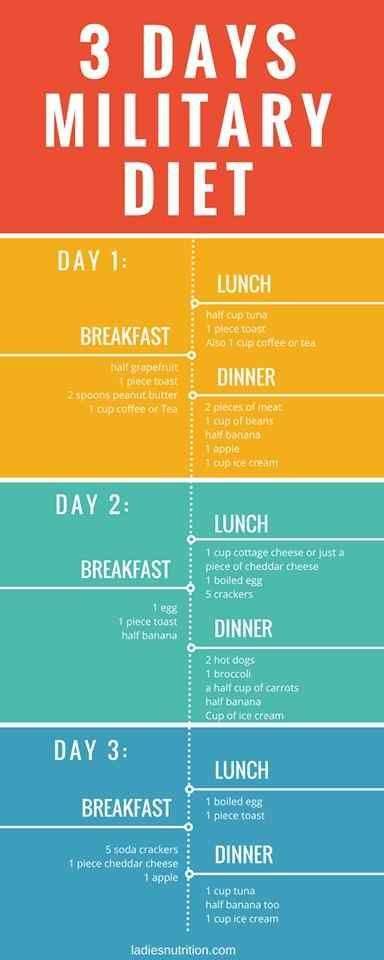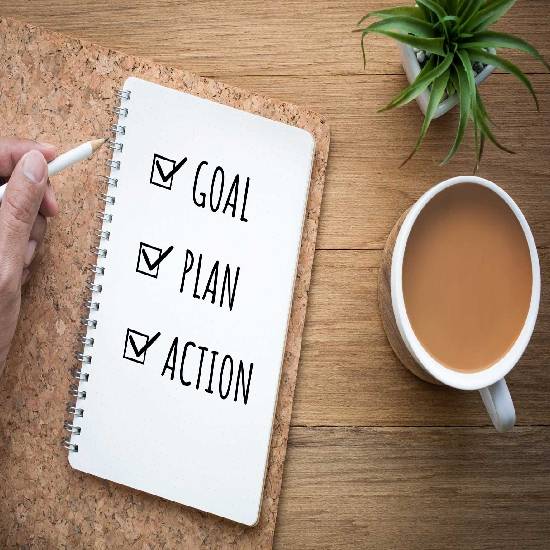A person should have a realistic expectation if they set a goal to lose weight in two weeks. Fast weight loss goals are both unrealistic and unhealthy. Smaller, more realistic weight loss goals are the best way forward. A realistic and healthy weight loss goal is to lose one to two pounds per week. To lose weight in a healthy manner, you should cut 500 to 1,000 calories a day by eating less and exercising more.
How To Lose 3 Kg In 2 Weeks Anything more than that may cause harmful effects to the body, including stress and tiredness. Before deciding to go on a weight loss regime, you may want to consult a doctor or a qualified nutritionist to know how much weight you need to lose and what are the best ways to achieve it. This may vary based on several factors, such as your general health, any underlying health conditions, your daily activity levels and your dietary preferences. Below are a few common tips to lose maximum weight within two weeks. Drinking ample water throughout your day is crucial if you want to lose weight.
Keeping yourself hydrated helps boost metabolism, keeps you feeling full longer and also helps with intestinal transit. Space out your water consumption throughout the day by drinking a minimum of 2 liters on an average. Another liquid that could potentially aid weight loss is green tea as it helps you burn belly fat. Additionally, consuming water in the form of green tea does not add any calories to your body. It is a great substitute for your morning coffee because milk and sugar are the two ingredients that will hinder your weight loss goals.
If you want to drink juices, make sure they're natural and made fresh without any added sugar. Consume juices only until noon as they will not only fill you up but will also give you the extra vitamin boost your body requires to remain energized and healthy. Drinking water on an empty stomach since it has many benefits of flushing out toxins from your body, boosting metabolism and accelerating burning of fat. How to lose weight is a quest several brave men and women venture onto. But few end up finding the holy grail that is a fit body.
Traditionally, this quest begins on the first day of every year. But in a month or two, weight loss plans tend to lose steam. So if your New Year resolution of losing weight hasn't gone the way you thought it would and you're on the verge of giving up completely, don't lose hope just yet. We might have a solution to help you get things back on track and make up for lost time.
If you're worried that you would need to follow a long-term weight loss plan, don't sweat. The key to shedding flab is to take things one step at a time and set smaller targets instead of higher, unrealistic goals which will only lead to disappointment if they are not achieved. So, if you've read about these teeny tiny lifestyle changes to help you lose weight in the long-run, we have something else along the same lines to that can give you effective results within a week.
So, if you're willing to give it a shot, here are 8 simple ways how to drop 2 kg or more in just one week. How many calories you burn depends on the frequency, duration and intensity of your activities. One of the best ways to lose body fat is through steady aerobic exercise — such as brisk walking — for at least 30 minutes most days of the week. Some people may require more physical activity than this to lose weight and maintain that weight loss. Do you want to lose weight in 15 days but wondering about the effectiveness of the weight loss plan? Well, our expert Dr Neha Sanwalka, nutritionist and dietician, explains that a person can lose around 2-3 kg of weight in a healthy way in 15 days.
Additionally, it doesn t involve strenuous exercises or fasting nor do you feel exhausted at the end of the day. All you need to do is eat healthy and exercise regularly to lose weight in the stipulated time. Here s a quick-guide to help you out in shedding to extra kilos within 15 days. A balanced diet together with regular daily exercise will enable to make lifestyle changes and attain this goal. Examples of menus on my website will help you with meal planning.
You have to watch your portion sizes and ensure you sit down and eat regular meals instead of snacking and picking. Nutrition needs vary according to individual metabolic rates and other factors such as activity levels and health status. I suggest you consult a dietitian to personalise a balanced eating pattern for your individual needs. Typically at such a consultation, the dietitian will weigh you, and ask about your medical history, eating and exercise habits, lifestyle patterns and history of weight. They will then devise an individual eating plan and organise future consultations to track your progress and make adaptations to your present meal plan when necessary. Firstly, I would recommend you speak to your GP; there are some conditions such as Thyroid disorders that can make it very difficult to shed the kilos, even when we are exercising and eating well.
Secondly, I would start a diet diary, recording everything you eat for a week and the time of your meals. When analyzing a diet diary we look at what foods you are eating at different times of the day, the volume of food consumed and importantly the amount of meals you are consuming in a given day. The best meal plan for weightloss involves a diet of 6 small meals a day, spaced out in two hour increments. Try looking up the "raw food pyramid" as it is a good indication of the food you should eat. Include proteins at every meal, but only a serve that is smaller than your palm.
He is about 5 feet 9 inches tall and he used to weigh around 65kg back in 2006. Blood test two years ago was normal including thyroid levels. He saw the doctor in 2013 but the doctor mentioned it wasn't a drastic weight loss and concluded it was due to aging as he had no concern given my father's appetite. He also has a good bowel movement everyday and stools are normal.
Also, he has tried Appeton 60+ and Ensure powder but still not seeing any weight gain. I read about whey protein isolate for sports people and was wondering if it would be a better option than the ones he has tried? To lose 5 kg in a week, you'll need to follow a strict diet and exercise regimen. Avoid foods that are high in carbohydrates, like bread, pasta, and rice. Instead, opt for lean proteins like chicken and seafood in addition to plenty of fruits and vegetables.
Drink at least 64 ounces of water daily to stay hydrated and to help you feel full longer, and get minutes of a moderate activity like running or swimming every day. Whether you have a special occasion coming up or you just want to feel healthier, sometimes you might want to lose weight fast. Losing 5 kilograms in one week is a difficult goal to reach, but you may be able to do it with the right diet and exercise strategies. However, losing weight slowly will make it easier to maintain your weight loss. If you spend two days a week consuming nothing but water, with some black coffee or plain tea thrown in for energy, you'll be at a 6,000+ calorie deficit by the end of the week. If you don't change your habits on the days you eat, you'll practically be at your weight loss goal of two pounds per week.
I've increased my workout intensity, lowered carb intake even more than before and I'm still stuck. Reading has me wondering should I not over exert myself during this intense outworks? Should I take a couple weeks off from working out? I'm just really confused on what to do, and it's kinda discouraging but I don't wanna stop losing weight. I've lost 31 lbs in about 2 months but I want to lose at least another 50.
What should I do, because I'm so drained from these intense workouts and struggling to see results. I would increase your calories and increase your workload, exercise program. Weight Lifting and cardio will ramp up your metabolism, burn more calories and build the body up while doing so.
Losing 1-2 lbs a week is the way it should be, there's not a better way. Its like working all your monthly hours in a row 160 hours straight with no sleep or anything or spread it out. If you lost lots early that's great, and you jumped out ahead. I would just add to what you probably think you need to take away. Start with a 30 minute walk a day if you don't exercise at all.
I have referred back to it several times during my weight loss journey which began in March 2021. I started doing exercise videos in my basement during the pandemic and intermittent fasting while focusing on protein and vegetables. I lost ten pounds per month for the first three months and then stalled out. The advice listed here helped me realize my body was regulating to the changes I had made and I stayed the course. I'm now down to 165 pounds from my starting weight of 224.
Most people go on low-carb diets to try and reduce weight. This is perhaps because the right way to go about it is not cutting carbs but knowing how to balance them and when to consume them. It is essential to include carbohydrates in your diet. This will help you shed fat and provide you with energy to exercise. Some popular sources of carbs are foods such as rice, oats and even fruits and vegetables.
It is best to consume more carbs in the first half of your day or before 2 PM. Complex carbs can be added to your diet for good energy and to help you lose weight. For example, you can switch from regular pasta to whole-grain pasta and include oats in your breakfast. Next is your diet, a healthy ballanced diet is not a weight loss diet.
It becomes a weight loss diet when you also reduced the calorie intake of that diet to less then what you burn inorder to lose wight every day constantly over a 7 day period. Losing weight quickly is rarely advised as it often involves some form of extreme dieting and intense exercise. Experts often warn this is one of the least sustainable ways to lose weight as you'll start to put the weight back on as soon as you come off the diet plan. A combination of healthy weight loss techniques, maintenance and combatting the weight loss plateau is the best way forward.
The key to successfully losing weight is remembering that slow and steady weight loss is better for your body than a drastic change. If you're following healthy weight loss habits, you should minimize your water weight loss while maximizing your fat weight loss, even as early as in the first week. Remember to keep your focus on establishing a healthier lifestyle, not just changing your weight. According to Mayo Clinic, a large waist circumference is a clear sign that you may suffer from metabolic syndrome. It is a name given to a group of health conditions such as heart disease, stroke, and diabetes. Metabolic syndrome is directly linked to leading a sedentary lifestyle and weight gain.
It's natural for anyone trying to lose weight to want to lose it very quickly. But people who lose weight gradually and steadily are more successful at keeping weight off. Healthy weight loss isn't just about a "diet" or "program". It's about an ongoing lifestyle that includes healthy eating patterns and regular physical activity. Dr Neha says, A high protein, moderate carbohydrate and low fat diet is the most effective diet plan to lose weight in 15 days.
It is important to maintain a correct balance between proteins, carbohydrates and fats to lose weight in a healthy manner. With a high protein diet, maximum weight loss in the short period of 15 days is ensured and moderate carbohydrates are essential for fuelling the brain and muscles. The low fat diet fulfils the body s requirement of fatty acids for various metabolic processes. You know that the key to losing weight is to burn more calories than you consume, ie, you need to ensure your body is going through a calorie deficit.
Any workout that gets your heartbeat racing is sure to burn calories in your body. Cardio is the best way to help you burn maximum calories to get fit. One of the best forms of cardio is done in the open environment through running. If you like dancing, you can always incorporate it into your routine cardio workout. Other forms of cardio are spinning, kickboxing and boot-camp workouts.
Thirty minutes of each of these exercises will help you burn 200 to 300 calories while simultaneously toning your arms, legs, and core. Additionally, if you include interval training in your workout, you can burn more calories. HIIT or high-intensity interval training alternates between short bursts of intense cardio immediately followed by a slower physical activity. After two weeks I lost 12lb , which I was shocked at! This was probably too fast a way to lose weight and I don't want to advocate this as a long-term technique. I have now introduced some carbs back into my diet and I am trying to slowly manage my weight loss to 1-2lb per week.
But you should keep in mind that nutritious, fresh foods are healthier than processed "diet" foods. It's also important to eat enough food every day so that your body doesn't think it's starving and slow down your metabolism. Focus on a balanced diet with lean protein, lots of fresh vegetables, whole, unprocessed carbohydrate and fruit sources, and small amounts of unsaturated fats.
We've said it before, but we'll say it again—moving is key to weight loss. And it will definitely help you lose weight in a week. Burn off more calories than you consume and the pounds will start dropping off.
"The combination of activity and consuming a healthy balanced diet is the best way to support healthy, sustainable weight loss," says Hope. Short-term dieting and compulsive exercising may get you results in one way or another, but they're not sustainable for long-term weight loss, and aren't recommended as a healthy way to lose weight. "Avoid fad or quick-fix diets," says registered dietician and nutrition researcher Tai Ibitoye. They'll also set realistic targets for themselves to keep the weight off long-term.
If you want to lose weight in two weeks, you will need to exercise every day. You can walk, jog, cycle, swim or do cardio exercises. While cardio training helps to get rid of extra pounds in a short period of time, muscle-building exercises also contribute to weight loss and improved health.
After realising this, I did a little bit of research online particularly about cutting down my carbohydrate intake. I researched on The Live Strong and Mayo Clinic Websites, who provide scientific and medical views on nutrition and dietary requirements. After reading a while, I found something called Ketosis, which is sometimes caused by a lower carbohydrate diet. Ketosis is ultimately a metabolic state where your body starts to break down stored fat and to burn it for energy. It also said that this should not be done in longer term dieting – so I thought I would try it for 14 days to see if it was carbs that was the cause of my weight gain. It's not enough to eat healthy foods and exercise for only a few weeks or even months if you want long-term, successful weight management.



























